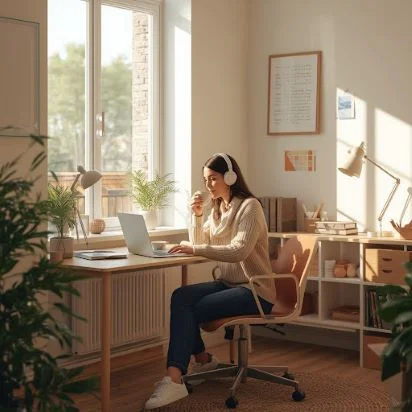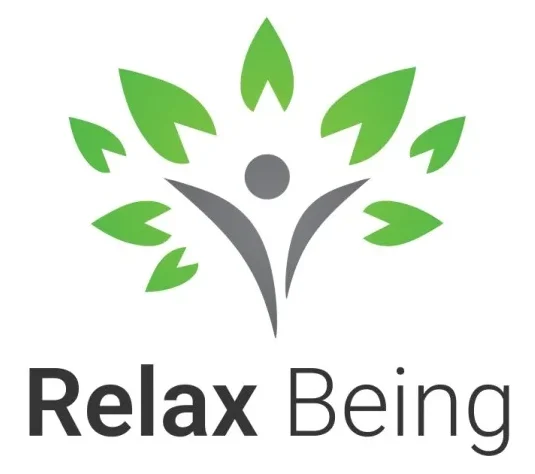
Mental Health Support for Freelancers
Starting my journey as a support for freelancers, I quickly realized that while the flexible nature of this path creates new opportunities for earning a good living, it also comes with its own challenges. The autonomy and creativity are rewarding, but the financial unpredictability and lack of structured healthcare benefits can make the freelance lifestyle difficult to manage. Often, the blurred work-life boundaries left me exhausted, reminding me why prioritizing mental health is essential to thrive both personally and professionally. Over time, I found that using practical strategies, seeking resources, and leaning on support systems greatly improved my emotional well-being.
From my own experience support for freelancers, navigating the unique demands of freelancing is less overwhelming when we acknowledge our struggles and actively look for ways to protect our balance and growth.
Strategies for Maintaining Mental Health for Freelancers
In freelancing, the freedom and flexibility can feel exciting, yet the hidden challenges often test your mental health in ways that are not always visible. As a freelancer, I have learned that without a clear structure, managing multiple projects, demanding clients, and tight deadlines can quickly blur the line between work and personal life, making a healthy work-life balance seem out of reach.
Unlike traditional jobs where office support for freelancers naturally exists, working alone can feel daunting, so having a clear guide with simple strategies becomes essential to maintain focus and ensure a healthy routine. From setting clear priorities to building boundaries that protect time for rest, I’ve realized that balancing independence with discipline is the real key to thriving as a freelancer.
Understanding Mental Health Challenges in Freelancing
Lack of Routine as a Support for Freelancers
From my own journey, I’ve seen how freelancers often face the challenging reality of irregular work hours, which can easily disrupt sleep patterns and slowly impact overall health. The absence of a regular routine makes it harder to maintain productive habits and stay motivated, especially when deadlines shift or clients need sudden changes.
Without establishing a consistent schedule, the day can feel scattered, contributing to hidden mental health issues that grow over time. I’ve found that when I lacked structure, even basic tasks became draining, showing me that building a flexible yet reliable rhythm is not just about efficiency but about protecting both focus and mental health.

Pressure and Self-Motivation as a Freelancer
Many freelancers quickly realize that staying self-disciplined and motivated is not just a choice but a necessity, as the constant pressure to handle different aspects of their business can be draining; from client acquisition to project delivery, the cycle often feels overwhelming and brings hidden stress.
In my own journey, I noticed how anxiety creeps in when tight deadlines and difficult clients demand more than what feels possible, pushing me to function at high levels of focus and energy. Yet, learning that dealing with support for freelancers these challenges strategically can actually lead to growth has been eye-opening, because while the work brings unavoidable pressure, finding small routines and self-checks helps me keep motivation steady and manage both professional and personal balance.
Understanding Depression in Freelancers
Depression can quietly manifest in the support for freelancers as persistent sadness, a loss of interest in usual activities, or overwhelming fatigue that leads to a lack of energy and difficulty in concentrating or even making simple decisions. From my own freelance journey, I realized that recognizing these symptoms is crucial, because without seeking timely help and addressing the challenges, they can progressively worsen, deeply impacting both personal and professional life.
Often, prolonged isolation, financial stress, and the lack of a strong support system become common triggers of depression for the support for freelancers, and understanding these patterns is the first step in addressing them effectively. The high demands of freelancing and the constant need to secure work can intensify these feelings, leaving one trapped in a cycle where depression begins to decrease productivity, lower work quality, and strain important personal relationships.
This can affect daily functioning and create a vicious cycle where poor health not only affects mental stability but also exacerbates stress and related issues. From experience, I have found that recognizing the impact early and taking essential steps to improve mental well-being can slowly break this loop before it becomes too heavy to manage.
Create a Dedicated Workspace
Creating a workspace that feels comfortable and free from unnecessary distractions can make a big difference in your mental health as a freelancer. When you set up a dedicated corner, even if it’s just a small desk, you create a clear mental distinction between work and personal life, which helps in reducing stress and increasing efficiency.
From my own experience, having a space designed to support focus and spark creativity not only makes me more productive but also builds a healthier environment where I can stay balanced and energized throughout the day.
Maintain Social Connections
As a freelancer, it is easy to become isolated when work takes most of your time, but making Social interaction a priority is important for your mental well-being.
I have learned that when I stay connected with friends, family, and even fellow freelancers, it creates a sense of balance and joy. Simple habits like scheduling regular communication, joining online communities, or engaging in co-working spaces encourage meaningful participation and make building a strong support for freelancers network easier. These bonds not only provide emotional comfort but also reduce feelings of isolation, reminding the support for freelancers that they are not alone in their journey.
Stay Physically Active
As a freelancer, I’ve learned that making physical activity part of my day not only boosts my mental health but also keeps me grounded when work gets overwhelming. When I incorporate simple exercise into my daily schedule, like short walks or stretching breaks, these small routines turn into powerful activities that steadily improve my mood and refresh my focus.
I’ve noticed that doing this on a regular basis gives me more energy and helps maintain healthy levels of motivation, while also offering real help to reduce the symptoms of depression and anxiety. Even five minutes of movement can go a long way in promoting overall well-being, reminding me that caring for the body is just as important as caring for the mind.

Prioritize Self-Care
In freelancing, I’ve learned that Self-care is not a luxury but an essential practice for protecting my mental well-being. To support for freelancers good health, I make it a point to engage in activities I genuinely enjoy, whether it’s simple hobbies like sketching or calming practices such as meditation and reading.
Creating a flexible schedule with regular breaks helps me ensure I’m taking enough time for yourself, instead of letting projects consume every hour. By prioritizing small daily rituals, I’ve noticed how they help me replenish my energy, maintain a healthy mindset, and sustain a realistic work-life balance.
Practice Mindfulness and Relaxation Techniques
As a freelancer, learning to practice mindfulness and relaxation daily has been one of the most effective ways I’ve managed stress and anxiety while balancing unpredictable workloads. Simple mindfulness exercises, like focusing on my breath between tasks, help me reduce sudden worries and bring a sense of calm to my mind.
Over time, I noticed that using different relaxation techniques, including guided meditation sessions and short body scans, not only lowered my stress levels but also began to improve my overall mental health. The key is keeping it regular—even five minutes each day makes a difference, especially when supported by online resources designed for freelancers. With steady practice, I’ve found that these habits build resilience, making challenges feel lighter and life more balanced.
Key Takeaways Support for Freelancers
Balancing Work and Life
As a freelancer, creating a healthy work-life balance does not happen by chance—it requires intentional choices and consistent effort. From my own journey, I learned that planning my day and establishing a simple routine helped me in setting clear boundaries between work and rest.
By prioritising self-care and managing finances wisely, I felt less pressure and more focus on meaningful work. I also discovered the value of seeking help when needed, whether from peers or mentors, and utilising productivity tools to stay organized.
At the same time, embracing flexibility allowed me to adjust when unexpected tasks came up without losing flow. The real secret was learning to maintain habits that safeguard mental health, so freelancing became not just about earning but about living well too.
Adapting to Change
In freelancing, I’ve realized that adapting to changing circumstances is not just a survival skill but a path to growth. Early in my career, unexpected client demands forced me to keep developing my ability to navigate sudden challenges more effectively.
Over time, I learned that building resilience comes from choosing a positive mindset and reminding myself to embrace every opportunity as a chance for learning. To succeed, one must stay flexible and open to new experiences, because each project and client brings its own rhythm, teaching us how to adapt with confidence while moving forward in this ever-evolving journey.
The Power of Connection
As a freelancer, I’ve learned that building a supportive network for the freelancer is vital not just for work but for overall well-being. Joining professional groups and engaging in social networks has helped me create meaningful personal relationships that keep me staying connected even during quiet work periods.
These bonds often provide both practical advice and emotional support, which can greatly reduce the heavy feelings of isolation many freelancers face. I’ve noticed that when we offer each other encouragement, it naturally opens up opportunities for collaboration and skill-sharing, leading to mutual growth in both career and confidence.

